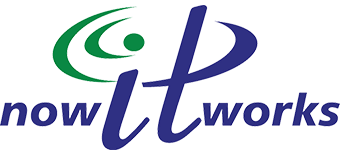
Why It Matters to Your Small Business
Wondering how you can get the most from your managed IT? When looking for a new IT managed service provider (MSP), what sort of information might you be asked to provide?
While we cannot speak for every MSP, here are 5 important tips about information that you should have to get the discussion started on the right foot. Indeed, a prospective strategic partner will want to know what you are doing now.
1. What’s Your IT Situation?
A new MSP will probably ask the following fundamental questions to begin assessing your current situation.
- How many computer workstations do you have, and what sort of hardware do they feature?
- Where are your servers located?
- Where is your domain hosted?
- Which software applications are crucial to running your business? Are they installed in-house, or are they cloud-based? Are they up to date?
- How do you currently manage your IT operations? With an in-house team, an outside managed service provider, or simply yourself?
2. Where Does Your Data Live?
How and where you store your data is vitally important for your business’s efficiency and security. Today, businesses are increasingly shifting data storage to cloud-based platforms to make access easier for remote workers and to improve security.
- Do you store your data on servers in your office location?
- Are you using a cloud platform for data storage? If so, which one?
- What measures do you have in place to keep your data and sensitive information secure?
- How do you currently access your data? Are you encountering any problems with data retrieval now?
3. Who Has Access to What?
You probably don’t want all employees to see your business’s financial information (such as payroll). Indeed, access to information probably depends on each person’s role.
- Does your business have clearly defined roles and responsibilities? Are they written?
- Do you restrict access to specific types of information according to specific role? If so, how is this done?
- Do you have written policies about which roles have access to which data? How are these policies enforced? Who reviews your access policies, and how often?
- Are restrictions on data access causing any problems for employees who are trying to do their jobs efficiently?
4. What Are Your Current Policies?
Lots of things can go wrong for any business. Natural disasters—floods, storms, power outages, etc.—can cause disruptions. Cyber criminals can steal or encrypt your data, hold it for ransom, or threaten to release it publicly. When such events happen, what plans do you have to get back to normal as quickly as possible?
- Do you have a data or operations recovery plan in place? Do you backup your vital information regularly and in different locations?
- Action plans – Have you determined how you or your employees will respond to questions about a data breach or a disruption in operations?
- If your customer relationship management (CRM) system is breached, what will you tell your clients? (Remember that there might be legal requirements about actions that you must take.) How might you respond to questions from reporters?
Despite best prevention measures, such events are likely to disrupt your business at some time. Therefore, it is prudent to have detailed policies and plans in place to ensure recovery as quickly as possible. Your MSP should be a vital, strategic partner in making sure that your plans include an effective technological component.
5. Who Connects to Your Network and How?
In our era of online transactions and information sharing, you probably have a lot of people connecting to various parts of your network. A new MSP will want to know who these people are and how they connect to your system.
- Do you have a user list for?
- employees/partners?
- outside vendors?
- clients?
- To which parts of your system do each of these categories of persons have access? How do they connect?
- Do you issue unique passwords or set up unique login procedures for external vendors?
- Do you require multi-factor authentication (MFA) to access your system?
- How do you monitor or record who does what while accessing your system?
Get the Most from your Managed IT Takeaway
When selecting an IT managed service provider, don’t be surprised if they ask these or similar questions. In fact, you should be shocked if they don’t ask such questions.
If they don’t discuss such strategic matters with you, run (don’t walk) to the next candidate. After all, you’re looking for a strategic, technological partner who will have your business’s best interests at top of mind. Contact us to learn more. Or arrange 15 FREE minutes with your Virtual CIO.
